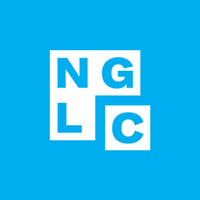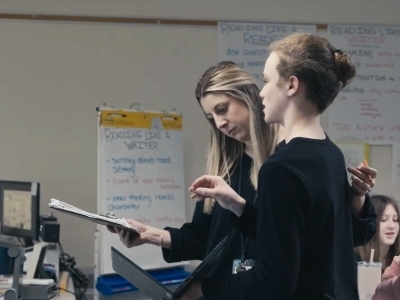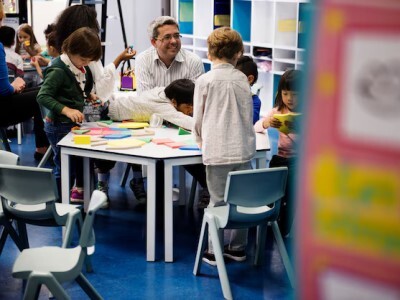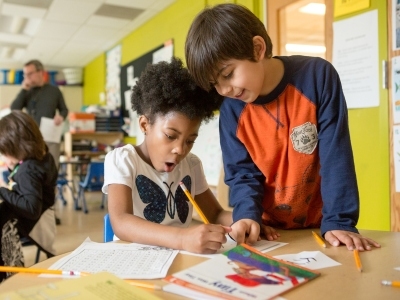PRESS RELEASE: NGLC, Washington D.C. and Chicago Partners Announce National and Regional K-12 Planning Grant Recipients
Topics
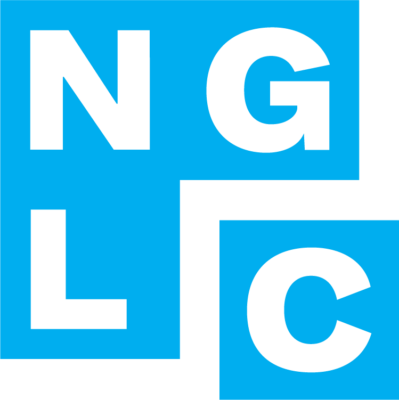
We’ve all had the experience of truly purposeful, authentic learning and know how valuable it is. Educators are taking the best of what we know about learning, student support, effective instruction, and interpersonal skill-building to completely reimagine schools so that students experience that kind of purposeful learning all day, every day.
Grants to support the development of 21 new or redesigned school plans
Contact:
Kristi DePaul
Sarah Luchs, sluchs@educause.edu
614.286.9309
Washington, D.C., April 29, 2014 – Next Generation Learning Challenges (NGLC), together with regional school-incubator partners in Washington D.C. and Chicago, today announced 21 planning grants investing roughly a quarter of a million dollars in early stage K-12 Breakthrough School Models. The investment includes new and redesigned schools involving both charter and district operators. Eight national grantees were selected from a pool of more than 90 applicants from across the country, along with 13 regional grantees roughly split between the two pilot sites in the NGLC Regional Funds: Breakthrough Schools: D.C. and Breakthrough Schools: Chicago.
Today’s announcement of the planning grants follows a rigorous selection process that identified the most promising school visions and leadership teams. Awards signal confidence in a plan’s viability as well as in the grant recipient’s ability to implement it. The awards are all part of NGLC’s larger initiative, launched two years ago, to work with innovative educators and organizations to design and launch new or redesigned schools reflecting personalized, competency-based, blended learning approaches.
Planning grants represent an important early stage investment and incubating opportunity. NGLC’s initial set of 30 national planning grants was awarded in June 2013. Prior to that, funding was specifically earmarked for schools ready to open or “launch” in the fall of the award year. That meant that NGLC was largely funding high capacity teams who were already positioned to execute their plans. The resulting school designs served as important proof points. The shift to add early stage investments arose out of the observation that school design teams needed more planning time, peer networking, design thinking, and operational support before attempting full implementation. It also reflected an intentional desire to engage a diversity of learning contexts, the potential within traditional district schools, emerging teacher leaders, and “under-the radar” partnership efforts that were going untapped by the competition.
NGLC provided incubating support for planning grant recipients along with the funding. Example topic areas included: human capital planning, financial sustainability, blended learning supports, and digital tools for instruction and assessment. One year later, 24 of the original 30 teams subsequently submitted applications for NGLC’s national launch competition—suggesting a strong connection between the support that NGLC was able to provide, and the level of interest in bringing these plans to fruition. (Launch grant recipients from this competition will be announced in early May 2014.)
“In order for all of this work to spread and scale,” said Andrew Calkins, NGLC Deputy Director, “design teams of innovative educators across the country need more intensive incubating supports—more opportunity to learn from each other, from schools that have already launched, and from research about the most promising emerging practices.” To bring about that level of support, NGLC last summer established two pilot regional-incubator initiatives, one in Washington D.C. with the CityBridge Foundation, and one in Chicago with LEAP Innovations and The Chicago Public Education Fund.
These regional partners provided a wide range of support to prospective applicants for the regional planning grants that were announced today. Regional competitions held in both D.C. and Chicago generated a variety of innovative designs reflecting key principles of next generation learning: personalized, blended, competency-based approaches that are sustainable on current levels of public funding. Some plans embraced the broader community, leveraging local assets, serving hard-to-reach populations or underserved students, or focused on cultivating multilingual and multicultural skills. Others addressed operational and technical challenges in education that encourage dynamic, customized learning, such as through the use of online personalized learning portfolios and pathways which enable students to advance at their own pace.
Sarah Luchs, NGLC K-12 Program Officer, emphasized the power of local incubation efforts. “Regional incubators are playing an important role in tapping local assets and inspiration and linking them to national research and resources,” Luchs said. “They provide a community for adult learning and more locally-owned transformation efforts. The school teams have quickly developed a sense of identity as change agents and have received a palpable level of support for their ideas and efforts.”
The final 13 grant recipients were selected from a pool of 34 applicants. “That number,” said Calkins, “reflects the viability of this Regionals approach, and speaks volumes about the work of the partner organizations and the vitality of innovation thinking in those two school districts.”
NGLC is managed by the non-profit education organization EDUCAUSE, in conjunction with other partners including the International Association for K-12 Online Learning (iNACOL) and the Council of Chief State School Officers (CCSSO). Funding for the grants was provided by the Eli and Edythe Broad Foundation and the Bill & Melinda Gates Foundation. Planning grantees will work toward school launches in fall 2016, with the possibility that some may open in 2015.
|
NGLC National Planning Grant Recipients |
Breakthrough Schools: D.C. |
Breakthrough Schools: Chicago Regional Planning Grant Recipients |
|
Achievement First: New Middle School* |
|
Cesar E. Chavez Multicultural Academic Center^
|
|
San Jose Unified School District: Burnett Middle School^ |
||
|
Charlotte Lab Schools: New K-8 School* |
||
|
Highlander Charter School: Highlander High School^ |
||
|
Knowledge Academies: KA High School* |
John C. Haines Elementary School^
|
|
|
Metcalfe County Schools: Metcalfe County High School^ |
||
|
OnePurpose School: New PK-12 School* |
|
|
|
Nashville Preparatory Charter School: RePublic High School* |
|
|
*Denotes charter school | ^Denotes district redesign school
To learn more please review our K-12 Breakthrough Models grant recipients page.
---
Founded by entrepreneur Eli Broad and his wife Edythe, both graduates of Detroit Public Schools, The Eli and Edythe Broad Foundation is a philanthropy that seeks to ensure that every student in an urban public school has the opportunity to succeed. Bringing together top education experts and practitioners, the foundation funds system-wide programs and policies that strengthen public schools by creating environments that allow good teachers to do great work and enable students of all backgrounds to learn and thrive. For more information, please visit www.broadeducation.org.
Guided by the belief that every life has equal value, the Bill & Melinda Gates Foundation works to help all people lead healthy, productive lives. In developing countries, it focuses on improving people’s health and giving them the chance to lift themselves out of hunger and extreme poverty. In the United States, it seeks to ensure that all people—especially those with the fewest resources—have access to the opportunities they need to succeed in school and life.
EDUCAUSE is a nonprofit association whose mission is to advance higher education through the use of information technology. EDUCAUSE helps those who lead, manage, and use information technology to shape strategic IT decisions. Over 2,400 colleges, universities, and other organizations in more than 40 countries are members. An estimated 60,000 individuals are active in EDUCAUSE. For more information, visit www.educause.edu.
Next Generation Learning Challenges (NGLC) accelerates educational innovation through applied technology to dramatically improve college readiness and completion in the United States. This multi-year program provides investment capital to expand the use of proven and emerging learning technologies, collects and shares evidence of what works, and fosters innovation and adoption of solutions which will dramatically improve the quality of learning in the United States, particularly for low-income students and students of color. NGLC is managed by EDUCAUSE in partnership with the League for Innovation in the Community College, the Council of Chief State School Officers, and the International Association for K-12 Online Learning. Funding for NGLC has primarily been provided by the Bill & Melinda Gates Foundation.(www.nextgenlearning.org).
###

